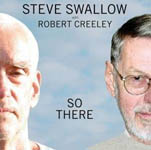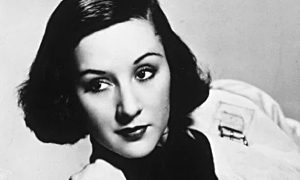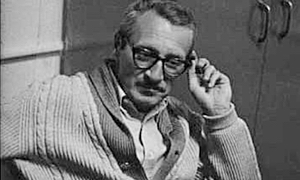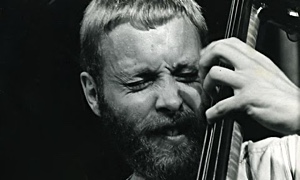Home » Jazz Articles » First Time I Saw » Billie's Last Chorus
Billie's Last Chorus
A few of my friends and I, just out of high school, sat right in the front row, our feet pressed against the stage so we could feel the impact of Art Blakey's bass drum every time he dropped a bomb. I had heard Billie on records and had been told by people who knew good music how great she was, but we were there for the drummers and the horn players and the piano players and the hard bop.
Billie came on after a lot of good stuff had already been played that night. We were close enough to be able to tell that all the stories about her were probably true, or had become true— junky, alcoholic, jailbird.
Her skin was that very light caramel color, almost peachy and, except for her hair, which was processed and stiff looking, she could have "passe." Billie still wore the big white flower in her hair, her trademark, but you could see up close that it was fake and brown and dirty around the edges. She had on a black strapless evening dress with tattered fringe, a dress with many, many miles on it as evidenced by the sweat stains under the arms. There were beads missing too, like some of the notes that were absent from her voice now, where there was just a sad silent croak where you could tell there should have been melody. Still, the notes she sang were beautifully agonizing, almost as if they'd been torn from her throat, making them sadder than she maybe even intended them to be. Billie had always had a cry in her voice. That was what people loved her for. But now it was almost all cry.
It wasn't her band backing her up that night. She was just sitting in with them, and sometimes the musicians, a mixture of older and younger guys juiced up from jamming and God-knows-what-else, seemed too rough with her, jostling her off a note she was already having trouble staying on, playing over her when she got too soft. It was probably not entirely intentional—Just guys being careless with something they didn't realize was so fragile. They were jamming. Billie was trying to sing. She stood her ground with her weight on one foot, her hip jutting out slightly, not leaning on the piano, but holding the mic tight to her lips.
From where I sat, I could see she was looking out into the darkness through half-closed eyes, not seeing the audience. She seemed not to be hearing the applause either, not bothering anymore to measure it against what the other players had gotten.
Billie had given all singers some things to try for, all the singers, and all the players, too. She'd given them some ideas about how to make the songs different, as different as bird-song is from season to season, species to species. Happy and sad all at once. They'd taken all she had to offer, and now she was left with almost nothing for herself.
Just a few months after that midnight concert, uptown at The Apollo one night, I saw a man, a female impersonator, "do" Billie in full drag. He'd managed to look like a slightly larger, less fragile version of her. And there was just enough of the real Billie in his voice to show respect, but not enough to keep it from being very, very sad.
Tags
PREVIOUS / NEXT
Support All About Jazz
 All About Jazz has been a pillar of jazz since 1995, championing it as an art form and, more importantly, supporting the musicians who make it. Our enduring commitment has made "AAJ" one of the most culturally important websites of its kind, read by hundreds of thousands of fans, musicians and industry figures every month.
All About Jazz has been a pillar of jazz since 1995, championing it as an art form and, more importantly, supporting the musicians who make it. Our enduring commitment has made "AAJ" one of the most culturally important websites of its kind, read by hundreds of thousands of fans, musicians and industry figures every month.
























